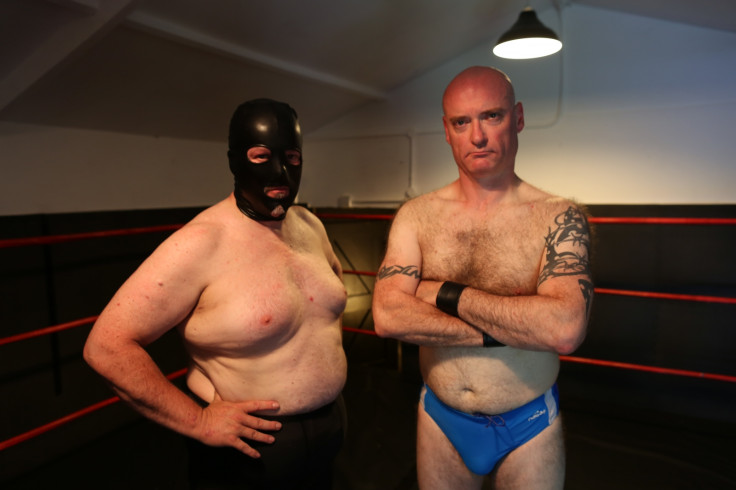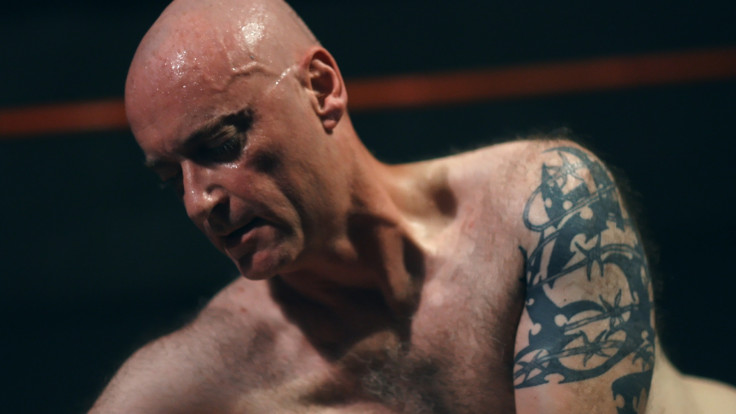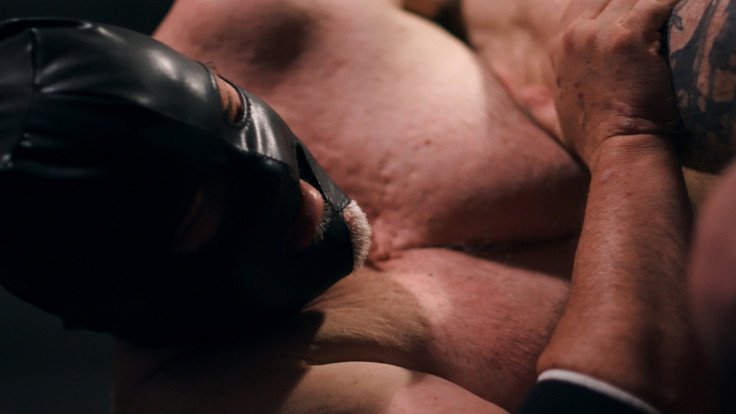Fetish fight club: Inside the underground kink wrestling community

KEY POINTS
- MeetFighters.com is an online community where men organise real-life fetish fights.
- Fighters fly across the world to compete with each other.
- Wrestlers build up to matches by engaging in sexual trash talk.
With its uninspiring grey background and generic welcome message inviting users to share their "interest in anything related to wrestling, fighting or the people who do it", the landing page of MeetFighters.com looks deceptively like an average sports community website to the untrained eye.
But a few scrolls and clicks reveals that it is anything but. MeetFighters.com is a gateway to an underground community of fetish wrestling, where men set up real-life fights in living rooms, hotels and makeshift rings across the world.
Filmmaker Grant Armour recently followed some of London's key figures to learn what attracts men to fetish wrestling for a Vice documentary. IBTimes UK caught up with him to find out what he discovered.
What surprised you the most when about the wrestlers when you met and interviewed them?
How conflicted some of these men are with their masculinity and acceptance of homosexuality.
Our first meeting with the main character we follow, Brit Pro Heel, was a "pro wrestling" match he had organised with a guy in gimp-style mask in a ring in someone's shed.
He is one the most prolific fighters on the site and would regularly post sexual statuses, but kept telling us he was just in it because he wanted to go pro. My impression from spending time with him was that he seemed reluctant to accept his fetishes, which made him an interesting and more complex character to follow throughout the film.

What do people get from fetish-wrestling? Is it just about a power trip?
The first guy we filmed was called Fitman321 on the site: a middle aged single gay guy who openly spoke about his fetishes, using sexual violence and role play as a form of release and escapism.
While he set up his living room for a fight, he told us about how he had broken someone's arm and had to take them to hospital. He even added this to his trash talk repertoire, telling people: "I'm gonna put you in the hospital."
Unfortunately his match was cancelled, which was obviously as disappointing for us in terms of the film as much as him. We found out that this was a common occurrence and sometimes it would take years of flirting online for fights to actually happen. It seemed like there were only a core group of people actually fighting and the majority of site members just enjoyed the trash talk and flirting in chat rooms.
How has social media changed the scene?
I've made documentaries about various underground subcultures before, but what made this interesting was how de-centred this community was. This seemed to be a very atomised online scene fuelled by social media addiction and fetishised forms of sexual gratification.

What is the demographic of these fighters?
There were some younger guys on the site, some bi-sexual couples, a few women into fetish wrestling, but they were mainly middle aged gay men.
Is the fetish wrestling scene one that is found worldwide?
This is an international community and people fly all over the world to take part in fights that they arrange on the site. Fitman321 had arranged a fight with someone from Germany, for instance.
What is the biggest misconception people have about these fights?
That people are just in it for sex. The wrestling alone is a fetish so people already get sexual gratification from the performance, power dynamics and physicality of the fights. Also the community and relationship aspect is much stronger than the sexual side. It is a way of people performing their masculinity while also having close, loving contact with another person and creating long-lasting friendships.
What do you want people to take away from the documentary?
That masculinity is a performance. And that people can create their own worlds on the weekends. That subcultures can exist online, but there needs to be a heart and soul at the centre of a community for it to be healthy.
This interview has been edited for brevity and clarity






















